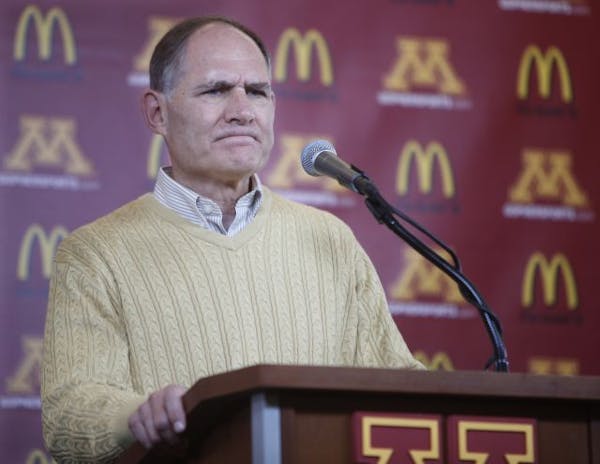Friday was his first day.
Or his 10th.
New University of Minnesota President Eric Kaler has been on the job for months, really. He used vacation days to fly back and forth from Stony Brook University in New York, where he was provost, for meetings at Morrill Hall, the State Capitol and cafes.
He is the U's 16th president and the leader of the $3.7 billion organization in an uncertain era. In an interview, he described what people expect of him, how he plans to control costs and how things have changed since he earned his Ph.D. at the U in 1982.
What's it like to take office in the midst of a state government shutdown?
It is, I'm sure, disappointing and frustrating to a lot of people. Obviously, we've anticipated this. The university will continue to be in business, so to speak. Hopefully it will not be a long shutdown.
How long can you guys go?
We are comfortable moving through the summer and into the fall semester. Obviously, if this goes on for six months, we'll have to reconsider. But we're certainly able to move forward over a moderate period of time.
Limits on tuition increases could clearly be part of a deal. Do you have a message to lawmakers about that?
The university has an autonomous relationship with the state. So we feel that tuition is a university prerogative. I certainly understand the legislators' drive to protect students by capping our tuition.
But we have to consider not only cost, but the value of the degree. On the one hand, our state appropriation has been reduced, and on the other hand, we're prevented from raising adequate tuition.
That's a recipe for mediocrity. You can't just cut an institution and drive it to excellence. You can't do that.
How do you plan to keep the U accessible to low-income students?
We need to work hard on that. I didn't come to the university to either watch it lose its excellent edge or to close the doors to people who need financial help to come.
Certainly there is tension around controlling tuition costs and providing access to low- and middle-income students who are completely qualified to be at the U.
How will graduate education have to change?
We have to continuously focus on the quality of what we're doing -- even more so than at the undergraduate level. We need to produce graduate students who are at the top of their game nationally and internationally.
Frankly, if we can't do that, then we ought to be asking ourselves what we're doing in that particular field. Producing a second-rate Ph.D. doesn't do anybody any good.
How do you measure that?
There are robust metrics in the funded disciplines of science, engineering and the professional schools, so you can keep score. It's harder in the humanities. So that requires a more qualitative look at what a program is doing.
But there are metrics there, too. How many books are you publishing, and who's publishing them? How many awards are your faculty winning? Where are your graduates going? Are they being hired by the Ivy League? Or are they struggling to find gainful employment?
You've been talking to a lot of people. What do they seem eager for you to tackle?
Everybody is worried about our budgetary situation, about having enough money to continue what we're doing.
I've been at several institutions of higher learning. Everywhere, they expect central administration to be lean and mean. Yet they also expect it to deliver immediately the results they need when they need them. There is that tension.
How do you plan to cut administrative costs? At Stony Brook, you brought in an outside firm to look for reductions. Will you do that here?
I have already had discussions with the appropriate vice presidents about what we need to do to benchmark our costs, to keep score, to keep moving forward.
We have a lot of expertise at the U. Whether we need to bring in some outside folks or not, I don't know yet. But I'm certainly very open to that.
How has the U changed since you were a student here?
The physical plant of the institution is much more handsome than I remember. We now provide a much better undergraduate education than we did when I was here.
How have you prepared for the job, emotionally?
I've talked to several people and gotten some good advice. I'm a pretty centered and stable person. I have a balanced life -- great wife, great kids, great dogs.
I'm just about as excited as a human being can be to be here. I really, truly am. It's very meaningful to me.
Jenna Ross • 612-673-7168

5 vinyl shops in greater Minnesota worth a spin for Record Store Day

Scoggins: Hot Suns loom, and Finch feels the heat

Meet the Athena winners: 103 girl athletes picked by their schools

A tale of 124 hoarded Minnesota cats has at least a hundred happy endings

